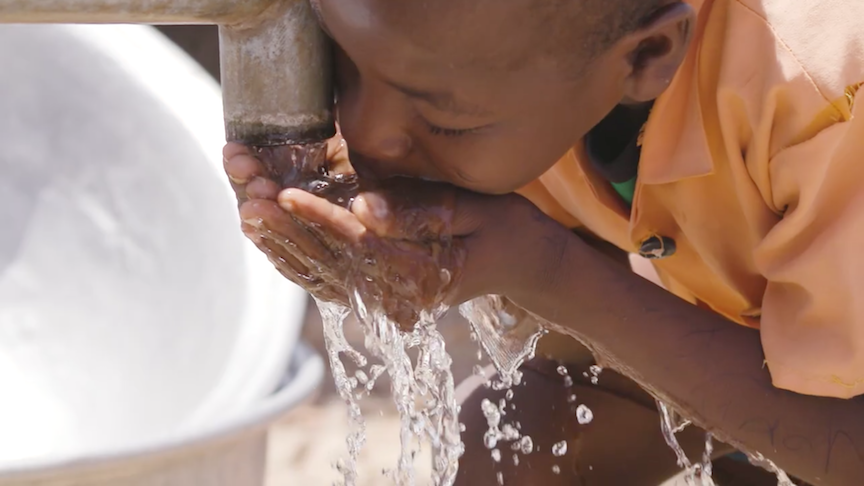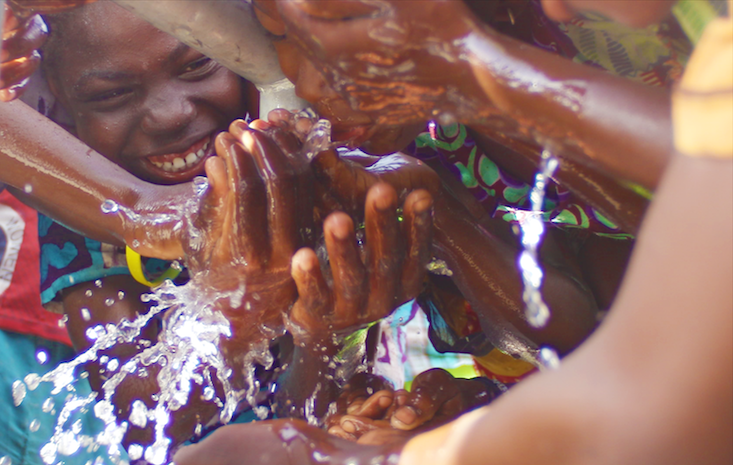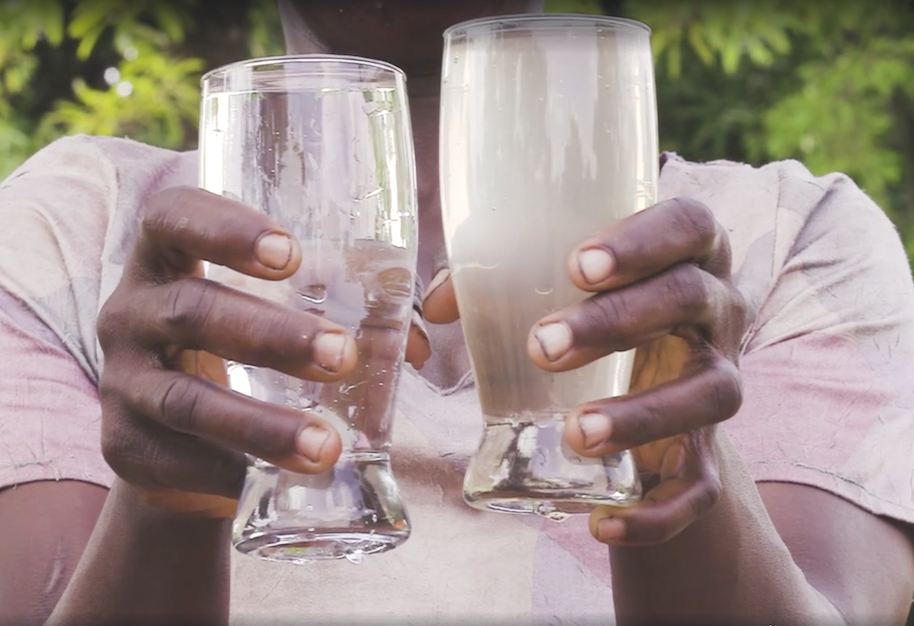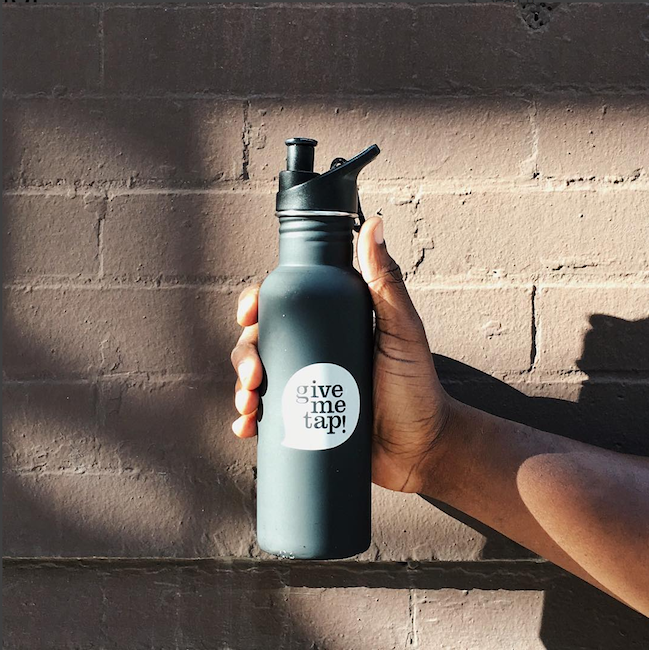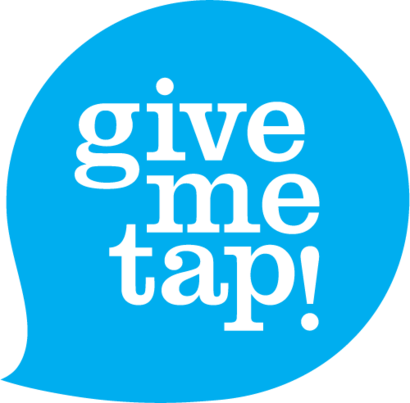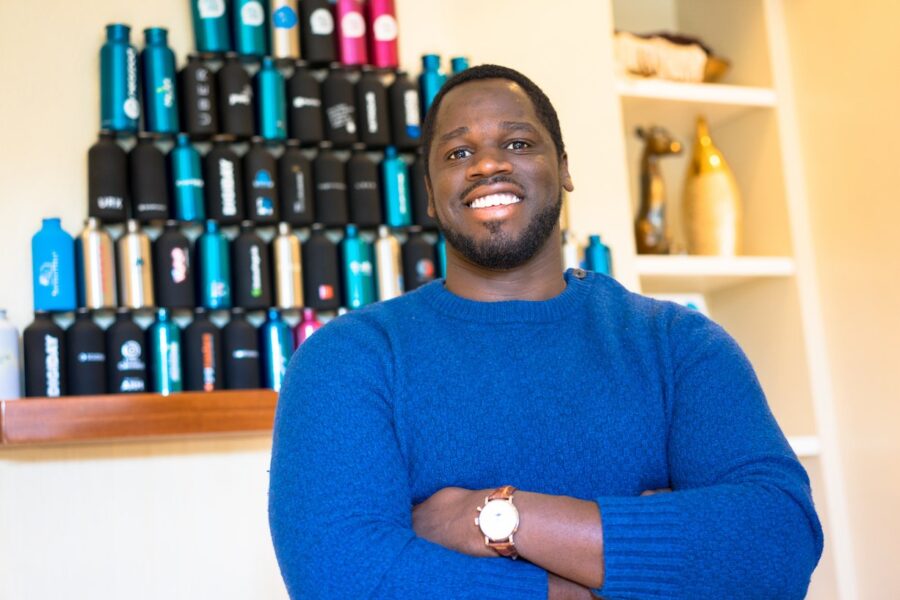
More Than A Bottle: Interview With Edwin Broni-Mensah, Founder Of GiveMeTap
Meet Edwin Broni-Mensah, Founder Of GiveMeTap
Edwin Broni-Mensah was a PhD student in search of something as superficial as six-pack abs when he stumbled on a business model with international impact. Raised by parents from Ghana and deeply connected to African culture, Edwin launched GiveMeTap to inspire international consumers to solve the global water crisis. His is a story that blends a sense of community with individual action, global impact with local buy-in to create sustainable change.
This all started with a six pack. Tell us about how your own hunt for clean water while on a workout challenge shaped your launch of a company that is helping to solve a global crisis.
This journey started a few months before my 25th birthday. I believed that by the time I was 25, I should have a few things in order. One of those things was six-pack abs. Like any Millennial trying to learn something quickly, I jumped on YouTube and found a program that guaranteed I could get nice abs in 90 days. All I had to do was exercise, eat clean, and drink over 1.3 gallons of water a day. So, I did exactly what they told me to do, but drinking all that water was harder than I thought.
As a PhD student, I spent most of my time in between classes and at the library. Walking around with multiple water bottles didn’t work (trust me, I tried). Buying bottled water was not an option on a student budget. So, I decided to ask for free water whenever I walked past a restaurant. Now, mind you, I was in England. It’s not like in the US where it’s socially acceptable to ask for free tap water. No. People would look at me as if I was asking for a three-course meal…for free.
“Why do we take our clean water for granted while there are millions of people in the world without it?”
After so many rejections, I started wondering: How is it possible that we have some of the best water in the world but still have to pay for water all the time? Even worse, why do we take our clean water for granted while there are millions of people in the world without it? That makes no sense! As a mathematician, I love making sense of seemingly nonsensical things. So, it was natural that I’d tackle this problem. The idea was simple: get coffee shops and restaurants in Manchester to happily offer free tap water, so people would buy our bottles. The more bottles I sold, the more people in Africa would have access to clean water. The word spread out, and GiveMeTap not only got partners in Manchester but across the UK. Eventually, we expanded to the US.
Your father grew up in Ghana. How did his experience influence your own value system? How has the Ghanaian culture shaped your perspective of privilege and responsibility, if at all?
Both of my parents moved to England from Ghana in the 1970s with dreams and hopes to provide a better life for our family. When they first arrived there, they had three jobs each in order to make ends meet and provide for us. I vividly remember some Christmas mornings when my mom still had to go to work, and we could not open our presents until she came back home. I’ve learned so much about the hard work, determination, and work ethics from watching my parents. I’ve also learned to always take care of the people we love.
My parents are also passionate about education, they never let my siblings and me forget that education is the key to a better life. That’s why I pursued a PhD. I had access to a high-quality and affordable education in England. It’s a real privilege. The fact that I watched my parents continually send money back to Ghana to fund my cousins’ education also helped me put into perspective how fortunate I was.
“It’s so easy to view Africa through the lens of Western media, a continent plagued by plight, deprivation and poverty. But what I experienced was a vibrant, dynamic, and beautiful place. A place where family is vital and central in every person’s life. Where acts of giving and sharing are standard.”
When I was growing up, I visited Ghana and other African countries frequently. So I have a very different perspective of what African culture and the African continent was like. It’s so easy to view Africa through the lens of Western media, a continent plagued by plight, deprivation and poverty. But what I experienced was a vibrant, dynamic, and beautiful place. A place where family is vital and central in every person’s life. Where acts of giving and sharing are standard. There’s a great sense of pride due to being the first country to gain its independence from England. It’s always felt like a place of innovation and pioneering, which has inspired me to want make a radical transformation in the world I see around me today. This is the Ghana I know.
Access to clean water impacts more than just an individual’s health. Tell us about the ripple effect that clean water can have on a community.
We always say that water changes everything. Sometimes it’s hard to understand what this really means. Once clean water arrives at a community, it impacts:
- Education: since girls don’t have to spend hours walking to water sources, they have enough time to attend school and to their homework. Better educated women are also healthier and have higher earning potential.
- Women’s Empowerment: women can take better care of themselves and their families: cook better food, clean the house, wash their clothes and cooking utensils. They can engage in entrepreneurial activities and produce income.
- Income: people have more time to engage in income-producing activities.
- Entrepreneurship: access to water enables entrepreneurial activities such as cooking, farming, agriculture, and so much more.
- Economic Growth: the community’s economy improves as healthcare costs decreases and income producing activities increase.
And those are only the tangible benefits. There are so many emotional and psychological benefits associated from having access to clean water. The comfort of a mother in knowing her children won’t be exposed to cholera. The relief of a girl during her period when she can clean herself at school. The joy of earning extra income and providing for your family. It all starts with clean water.
“There are so many emotional and psychological benefits associated from having access to clean water.”
Tell us about the impact that a customer can expect to make when they purchase a Give Me Tap product. How have partnerships been integral to that impact?
They can expect to change someone’s life forever. When you buy a GiveMeTap bottle, you’re not only giving someone access to clean water. You’re increasing children’s survival rates. You’re giving girls the opportunity to have an education. You’re empowering women to take better care of their children and families. You’re giving people the chance to earn an income. And so many other things that are only possible when clean water is readily available. Our goal is for people to realize that changemaking is not that hard. Something as simple as a water bottle can be the catalyst for change.
“When you buy a GiveMeTap bottle, you’re not only giving someone access to clean water. You’re increasing children’s survival rates. You’re giving girls the opportunity to have an education.”
How has entrepreneurship changed you? How have the values you’ve built into your business impacted other areas of your life?
Fundamentally, when businesses were created, their main goal was to solve human problems. I think this is why we’re seeing a return to entrepreneurs wanting to solve the pressing problems of the world.
Entrepreneurship has given me hope in people, businesses, and our world at large. I’ve been able to meet some of the most incredible minds in the world, and I’m constantly inspired by the forward thinking potential of us human beings. Before starting GiveMeTap, I was not the most sustainable or charitable individual. Running my company made me much more aware of my environmental impact. More than that, it’s made me realize that simple acts can have a powerful impact on people and on the planet.
Running an international social venture is an enormous challenge. Tell us about the challenges you have faced in your pursuit to improve access to clean water around the world.
Running an international company is hard. It’s a balancing act between focusing on your home market which is growing and thriving and starting from scratch in a brand new country. It requires a lot of time and energy to learn about this new market and position your brand and product accordingly. Some of the hardest challenges are getting the operations right—predicting inventory and meeting orders in a cost-effective way. A LOT of experiments are made and the journey is full of ups and downs. In fact I would say the hardest thing is how it challenges you mentally. Staying positive, despite defeats and not knowing what to do next is crucial. With that said, there’s no better feeling when you see your company growing and thriving in multiple countries at the same time. You get a wonderful sense of accomplishment.
Instagram
Facebook
Twitter
About The Author
Kassia Binkowski is a Contributing Editor at The Good Trade and the Founder of One Thousand Design. She grew up in Madison, WI and traveled her way around the world to Boulder, CO which she now calls home. Nestled against the Rocky Mountains, Kassia supports innovative organizations from Colorado to Kathmandu tell their stories of social change through writing, photography, and design. Kassia is an eternal optimist and forever a backroad wanderer.
